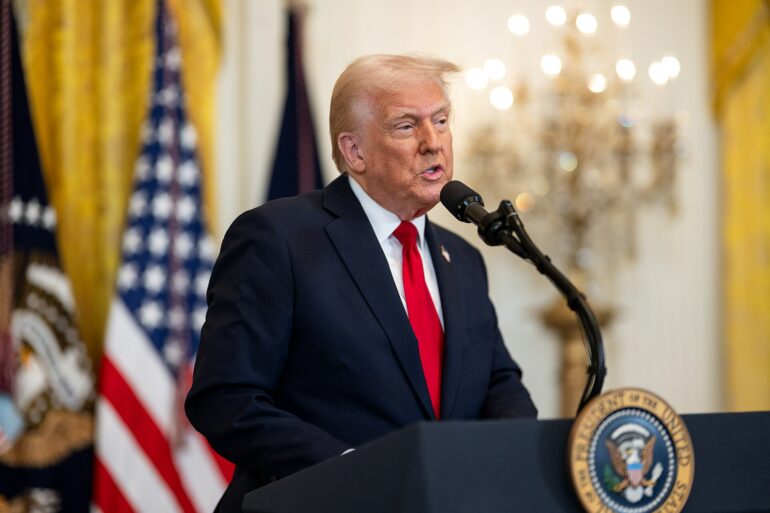Aboard Air Force One en route to South Korea this week, President Donald J. Trump reportedly directly addressed a question that has hovered over his second administration: whether he intends to pursue a third term in office. For the first time, Trump made clear that the Constitution bars him from doing so — while emphasizing that the Republican Party is stocked with strong potential successors.
“I would say that, if you read it, it’s pretty clear,” Trump told reporters traveling with him late Tuesday. “I’m not allowed to run. It’s too bad. I mean, it’s too bad. But we have a lot of great people.”
Under the 22nd Amendment, presidents are limited to two elected terms. That fact is ordinarily uninterrogated — yet Trump has repeatedly teased the possibility of extending his tenure, a notion that has energized some supporters and frustrated critics. From “Trump 2028” hats reportedly visible in the Oval Office to comments hinting at unfinished business, the idea has lingered at the edges of political conversation.
His former strategist Steve Bannon has been among the loudest advocates of that speculation, asserting that Trump “can serve another term” and insisting that “there’s a plan” to make it happen — including confidence that the president could “win in 2028.”
Pressed again earlier this week on whether he was ruling out another run, Trump chose not to close the door. “Am I not ruling it out?” he said on Monday. “I mean, you’ll have to tell me. All I can tell you is that we have a great group of people, which they don’t.”
That confidence in the GOP’s future cast took a more specific form as Trump praised two of the party’s most prominent figures — Vice President JD Vance and Secretary of State Marc Rubio — calling them “great Republican presidential nominees.” His remarks hinted at a spirited intra-party competition for leadership in 2028, one showcasing the administration’s own senior officials.
In the hours before Trump’s constitutional acknowledgment, Sen. Tommy Tuberville, Republican of Alabama, went so far as to suggest the president “might be able to go around the Constitution” in order to pursue a third term. That line of speculation underscores just how passionate some conservative lawmakers and activists remain about keeping Trump in the White House beyond the traditional limit.
For now, the president’s tone has shifted toward acceptance — with a caveat that keeps anticipation alive among loyalists. His message appears designed to strike a balance: respect for constitutional order paired with a continued insistence that the movement he leads will extend far beyond his time in office.
Trump’s acknowledgment that “it’s too bad” he cannot run again may not fully extinguish hopes among those who have long urged him to stay. But it also reinforces a different, equally pivotal theme for conservatives: that the Republican Party believes its future leaders are already in place, prepared to carry forward his agenda even when he is no longer at the top of the ticket.
[READ MORE: Trump Administration Moves to Reinforce Deportation Agenda with ICE Shake-Up]



